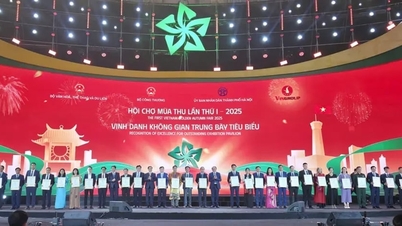
Proposal on conclusion and implementation of electronic labor contracts.
According to the Ministry of Home Affairs , through the process of monitoring and evaluating 5 years of implementing the 2019 Labor Code, it shows that the conclusion of electronic labor contracts has created many advantages for employees and employers, especially enterprises using many workers. This is a progressive regulation, consistent with the current development trend of digital technology, meeting the inevitable requirements in the future of digital government, digital economy and digital society.
However, the process of implementing and implementing electronic labor contracts also faces a number of difficulties and obstacles such as: there are no specific instructions on amending, supplementing, and terminating electronic labor contracts; lack of regulations related to the conditions for the validity of electronic labor contracts; the recognition of legal value and use of electronic labor contracts when transacting with third parties still faces many shortcomings and limitations.
Therefore, most businesses have proposed that state management agencies issue specific instructions on concluding and implementing electronic labor contracts so that the application of regulations can be implemented synchronously and smoothly.
The Ministry of Home Affairs believes that it is necessary to issue a Government Decree regulating the conclusion and implementation of electronic labor contracts in order to perfect the legal basis and implement it synchronously in the coming time.
The Draft Decree consists of 5 chapters and 29 articles.
The Draft Decree consists of 5 chapters and 29 articles regulating the conclusion and implementation of electronic labor contracts, electronic labor contract platforms; the construction, management, maintenance, exploitation and use of electronic labor contract platforms.
Regarding the conclusion and implementation of electronic labor contracts, the draft Decree focuses on the following contents:
1. Regulations on general principles , including compliance with legal provisions on content (labor law) and legal provisions on form (electronic transaction law), requirements on recognition of legal value of electronic labor contracts and maximum use of electronic labor contracts in practice.
2. Regulations on subjects participating in the activities of concluding and implementing electronic labor contracts : including employers and employees authorized to conclude labor contracts according to the provisions of Article 18 of the Labor Code (as for concluding labor contracts in paper documents) and adding a third subject, the Electronic Labor Contract Software Provider (eContract) - this is an intermediary subject participating in the process of concluding and implementing labor contracts as a support method for concluding, providing software for concluding and implementing electronic labor contracts for the parties to create, sign, store, retrieve and manage electronic labor contracts.
The employment contract must be attached with an Identification Code (ID) to ensure uniqueness.
3. Regulations on conditions and methods for signing labor contracts : The signing of electronic labor contracts is carried out through eContract and meets all the prescribed conditions. Employers and employees use digital signatures issued by organizations providing legal digital signature certification services to sign electronic labor contracts to ensure the identification of the signer, linked to the data content, controlled by the signer at the time of signing and able to detect any changes after signing, ensuring the highest level of safety and legal value.
In addition, the Decree stipulates that the Labor Contract must be attached with an Identification Code (ID) automatically issued by the Platform, ensuring uniqueness. This is the basis for retrieving, comparing, reporting and checking information related to the Labor Contract on the Platform.
4. Regulations on the validity of electronic labor contracts:
Pursuant to Article 400 and Article 401 of the 2015 Civil Code, the effective date of a legally concluded contract is from the date of conclusion, unless otherwise agreed by the two parties or otherwise provided by relevant laws; the date of conclusion in writing is the date the last party signs the document or by other form of acceptance expressed in writing.
Pursuant to the above provisions, Article 23 of the 2019 Labor Code stipulates that the Labor Contract takes effect from the date of signing by both parties, unless otherwise agreed by both parties or provided by law.
Compared to paper labor contracts, determining the time of signing is more difficult because the implementation in the electronic environment requires time to transmit data between the subjects, leading to the signing time not being at the same time. Accordingly, to ensure compliance with the regulations on determining the effective time of labor contracts in particular and contracts in general and in accordance with the characteristics of electronic labor contracts, the draft Decree stipulates that the effective time of electronic labor contracts is the time when the last party signs the electronic labor contract, unless the two parties have other agreements.
5. Regarding amendment, supplementation, suspension and termination of electronic labor contracts : During the implementation of the labor contract, there will be situations where one or both contracting parties need to amend, supplement, suspend or terminate the electronic labor contract, leading to the need to sign electronic documents agreeing on these contents. To ensure the legal value of these electronic documents, the draft Decree stipulates the methods and conditions for implementation in two cases: (i) Labor contracts concluded by electronic means; (ii) Labor contracts concluded in paper documents are now amended, supplemented, suspended or terminated via electronic means in the form of data messages.
In addition, the draft Decree also specifically stipulates the responsibilities of ministries, branches and localities according to the scope of assigned functions; at the same time, it stipulates the rights and responsibilities of Service Providers, employers and employees to promote the conclusion and implementation of electronic labor contracts and ensure that the Platform operates effectively, and that electronic labor contract data on the Platform is guaranteed to be "correct, sufficient, clean and alive".
We invite readers to read the full text and comment on the draft here.
Snow Letter
Source: https://baochinhphu.vn/de-xuat-ve-giao-ket-va-thuc-hien-hop-dong-lao-dong-dien-tu-102251104114927224.htm


![[Photo] Ho Chi Minh City Youth Take Action for a Cleaner Environment](https://vphoto.vietnam.vn/thumb/1200x675/vietnam/resource/IMAGE/2025/11/04/1762233574890_550816358-1108586934787014-6430522970717297480-n-1-jpg.webp)

![[Photo] Panorama of the Patriotic Emulation Congress of Nhan Dan Newspaper for the period 2025-2030](https://vphoto.vietnam.vn/thumb/1200x675/vietnam/resource/IMAGE/2025/11/04/1762252775462_ndo_br_dhthiduayeuncbaond-6125-jpg.webp)

![[Photo] The road connecting Dong Nai with Ho Chi Minh City is still unfinished after 5 years of construction.](https://vphoto.vietnam.vn/thumb/1200x675/vietnam/resource/IMAGE/2025/11/04/1762241675985_ndo_br_dji-20251104104418-0635-d-resize-1295-jpg.webp)
![[Photo] Ca Mau "struggling" to cope with the highest tide of the year, forecast to exceed alert level 3](https://vphoto.vietnam.vn/thumb/1200x675/vietnam/resource/IMAGE/2025/11/04/1762235371445_ndo_br_trieu-cuong-2-6486-jpg.webp)




































































































Comment (0)